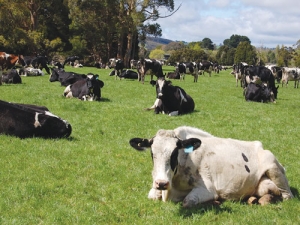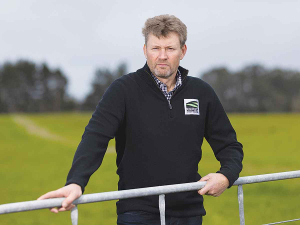Tasmanian dairy farmers are said to be saving money on power bills thanks to energy efficiency assessments on their farms.
Between December 2012 and February 2015, DairyTas did 200 dairy shed energy audits (about 50% of Tasmanian dairy sheds) as part of a national Dairy Australia project funded by the Department of Industry and Science energy efficiency information grants scheme.
Some farms are said to have saved thousands of dollars, and A$1 million more savings are possible, says Dairy Australia.
The audits were done by tradesmen with practical knowledge of dairy sheds. They reviewed 12 months of billing data, visited sheds typically during milking and followed up with specific recommendations.
Chris Whish Wilson, an independent refrigeration mechanic who did 120 of the audits said most savings could be achieved with regular and targeted maintenance.
“We saw some big differences between sheds: in some thousands of dollars could be saved quickly with little capital outlay, and others running efficiently could still save money by switching to time-of-use contracts or by removing unnecessary extra meters which have an annual charge.
“Some sheds had efficiency and billing savings, and if farmers implemented all the recommendations made, savings would average $3,000 - $5,000 per farm, totaling $1 million across 200 sheds.”
Energy efficiency savings alone saved each audited farm an average of A$1080 per annum.
While Tasmanian electricity is largely sourced from renewable hydro energy with no greenhouse gas emissions, the focus on dairy shed energy efficiency nationally could hold down carbon dioxide emissions from coal fired power stations.
Tasmanian project manager, Rachel Brown from DairyTas, believes there have been other benefits.
“We now have some of the best energy use benchmarking data in the country thanks to the results from 200 shed assessments. There were huge variations between sheds in all aspects: the average annual dairy shed bill was A$21,131 but one shed was costing A$72,046 a year in electricity. Dairy farmers pay an average of A$10.40 in electricity for every 1000L milk out of shed and the most inefficient shed pay nearly three times that - A$27.87.”
Dairy farmers pay A23 cents/kWhr for electricity – with the cheapest power being A17 cents/kWhr and the most expensive power A28 cents/kWhr.
The audit project focused only on dairy shed use as irrigation is typically the biggest part of the power bill for irrigated farms, depending on the season.











